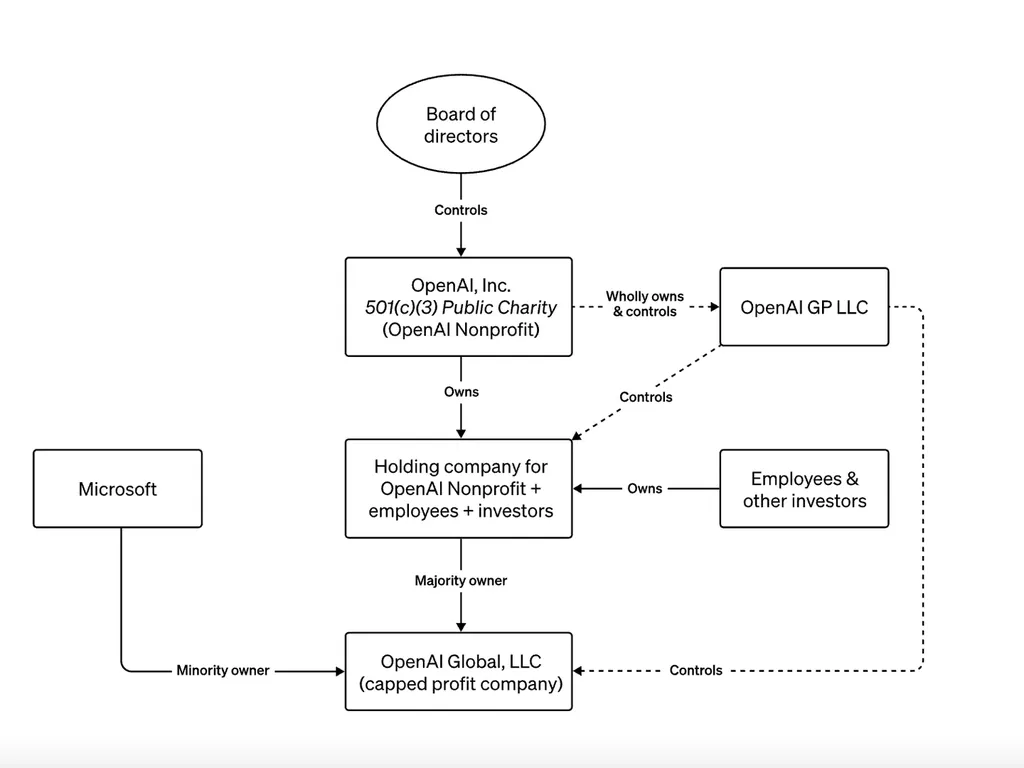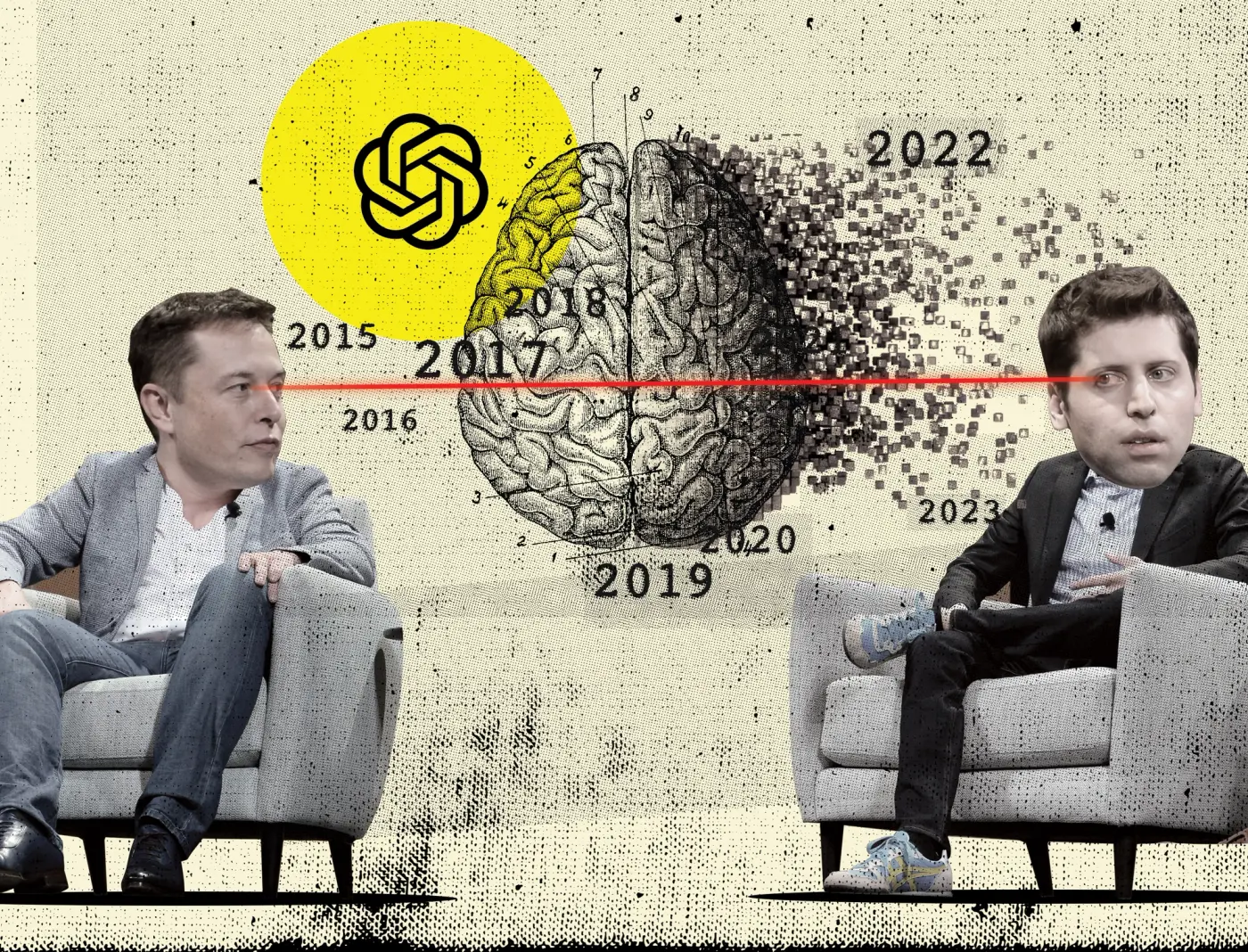Introduction:
In a shocking turn of events, billionaire entrepreneur Elon Musk has filed a lawsuit against OpenAI and its CEO, Sam Altman, accusing the artificial intelligence (AI) research organization of betraying its original commitment to being an open-source, non-profit entity.
Musk, a co-founder of OpenAI in 2015, stepped down from its board in 2018 but has now taken legal action, claiming that OpenAI’s recent multibillion-dollar alliance with Microsoft goes against the initial promise to work for the benefit of humanity. The lawsuit, filed in San Francisco, asserts that OpenAI’s shift towards profit-driven objectives is a breach of contract.
Follow us on LinkedIn for everything around Semiconductors & AI
Why OpenAI started as Non-Profit:
OpenAI initially chose a non-profit structure for two key reasons:
- Prioritizing mission over profit: They aimed to ensure that the development of artificial intelligence (AI) would be safe and beneficial for humanity as a whole, without being swayed by the pressures of generating financial returns. Operating as a non-profit helped them avoid potential biases that could arise if they were focused on maximizing profits for shareholders.
- Transparency and public trust: By operating as a non-profit, OpenAI could demonstrate transparency in their research and decision-making processes. This fostered public trust and ensured that their work was aligned with the greater good, rather than serving private interests.
Overall, the non-profit structure initially allowed OpenAI to focus on its core mission of developing safe and beneficial AI, free from the pressures of short-term profits.
However, the recent alliance with Microsoft seems to have sparked controversy, prompting Musk to question the company’s commitment to its original mission. The lawsuit contends that both Sam Altman and co-founder Greg Brockman had pledged to maintain a non-profit status for OpenAI, making its current pursuit of profit a violation of the initial agreement.
Read More: 10 Things to Know About OpenAI’s Sora Videos
Why did OpenAI start with non-profit and then turned to profit.
OpenAI’s initial choice of being a non-profit stemmed from a desire to prioritize its mission of ensuring safe and beneficial artificial intelligence (AI) for humanity over potential profit motives. However, they faced challenges in:
- Funding limitations: Non-profit fundraising couldn’t keep up with the high costs of their research, particularly the computational power needed for training and testing complex AI models.
- Attracting talent: Competitive salaries and equity incentives, common in the for-profit world, were unavailable as a non-profit, making it difficult to attract and retain top researchers.
Therefore, they transitioned to a “capped-profit” model, a hybrid structure combining aspects of both non-profit and for-profit entities. This allowed them to:
- Raise capital more effectively through investors who could receive a limited return on their investment if the company succeeds.
- Offer competitive compensation and equity to attract and retain talented researchers.
Read More: 5 Reasons OpenAI become World’s 3rd Largest Startup in Just 6 years
However, this shift also raised concerns about potential conflicts of interest and the prioritization of profit over the original mission. OpenAI maintains that their non-profit arm still holds ultimate control and ensures their focus on responsible AI development.

Allegations and Secrets of Elon Musk OpenAI Lawsuit:
Elon Musk’s legal team claims that OpenAI has kept the design of its most advanced AI model, GPT-4, under wraps, labeling it “a complete secret.” This allegation adds another layer to the lawsuit, suggesting that OpenAI’s shift towards secrecy and profit-making has not only breached the initial commitment to being open-source but has also hidden crucial developments from the public eye.
Sam Altman’s Ouster and Return:
The legal battle comes on the heels of Sam Altman’s controversial ousting by OpenAI‘s former board, which cited the need to protect the company’s mission to develop AI for the benefit of humanity. However, Altman swiftly returned to the company with a new initial board, further complicating the narrative and raising questions about internal conflicts within OpenAI.
The Impact on the AI Landscape:
OpenAI’s ChatGPT, a powerful language model, gained rapid popularity, becoming the fastest-growing software application globally within six months of its launch in November 2022. The success of ChatGPT spurred the development of rival chatbots from major players like Microsoft and Alphabet, as well as numerous startups securing billions in funding to capitalize on the burgeoning AI hype.

Future Uncertainty and Board Changes:
As the legal battle unfolds, OpenAI faces an uncertain future. Musk’s lawsuit could potentially have far-reaching implications for the organization’s reputation and mission. Additionally, OpenAI’s reported plans to appoint several new board members in March suggest internal efforts to navigate through the challenges posed by the legal dispute and maintain its standing in the AI community.
Conclusion:
The lawsuit filed by Elon Musk against OpenAI marks a significant moment in the evolving landscape of AI research and development. The legal battle not only raises questions about OpenAI’s commitment to its initial mission but also sheds light on the challenges and complexities faced by organizations seeking to balance profit motives with ethical considerations in the rapidly advancing field of artificial intelligence. As OpenAI prepares to defend its actions in court, the outcome will undoubtedly shape the future trajectory of the organization and influence broader conversations about the responsible development of AI technologies.




